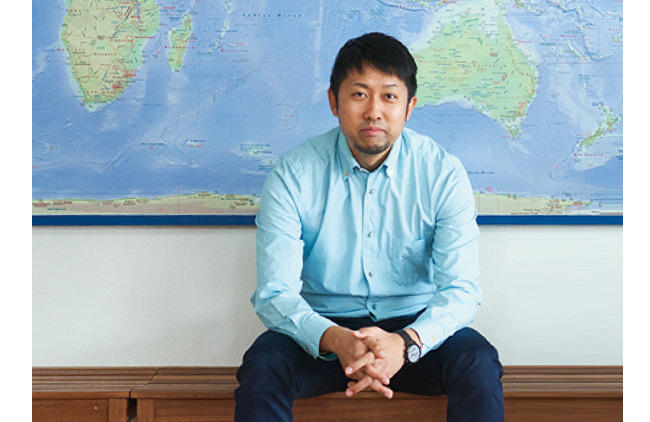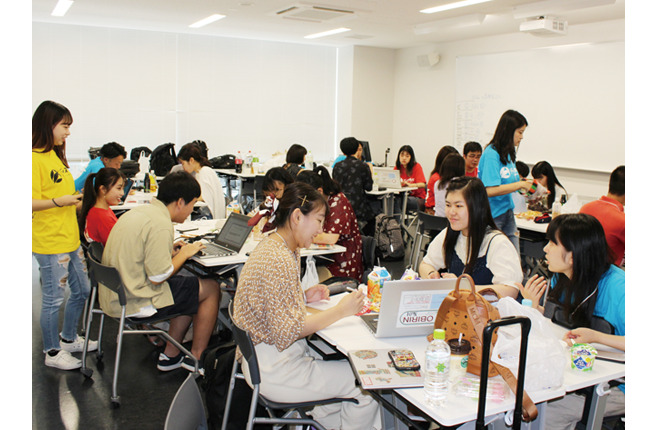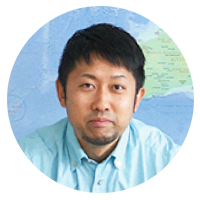JF Oberlin University will open a new "Educational Inquiry Science Group" in April 2023.The characteristic of this school group is to aim for a new way of higher education and to think about any questions that the person asks by connecting them to pedagogy.

XNUMX, Everything starts with "curiosity" and enhances self-transformation and communication
XNUMX. "New pedagogy" without a teaching profession that supports all educational activities in society
XNUMX. Systematically acquire research methods and research methodologies that can be used anywhere
XNUMX, "Hybrid learning" that combines online learning using technology and the goodness of learning in the classroom
XNUMX, "Teach, learn" peer learning where students teach and learn from each other
XNUMX, "Fieldwork" in which oneself is involved in various ways as a leader of education, both domestically and internationally
In the Educational Inquiry Science Group, both of the above features are based on students taking the initiative in finding and exploring themes based on "inquiry" in high school.The starting point of the inquiry is the "curiosity" that the students themselves send out.We will develop it into "inquiry".
But what do you really want to do and learn?
How many high school students can answer immediately when asked this way?
Many high school students may not know what they want to do or what they want to learn, or they may be wondering if what they like should be learned at university.
This time, we interviewed Associate Professor Shinichi Yamazaki, who is in charge of launching the Educational Inquiry Science Group.
"I think today's students don't have anything they like or want to do, they just don't want to say it," says Associate Professor Yamazaki.

"In primary and secondary education, we set the content and goals to be learned. It is an indispensable process for children to acquire knowledge in the process of growing up, and primary and secondary education in Japan is very excellent. However, therefore, when a student is asked what he or she wants to do, he or she must unknowingly say something that meets the expectations of others, or try to come up with what seems to be a correct answer or goal. I think, and as a result, I'm just not saying anything that is out of that frame. "
Also, even if the student's point of view is immature or he / she does not have multifaceted thinking and knowledge, it is natural, and even before the curiosity-based thoughts are cultivated, he / she is motivated to send himself / herself. Associate Professor Yamazaki points out that it is important for students to think that the university is a reliable community for students to discuss and deepen their thoughts without losing it.
"What options and possibilities are there to recognize one's curiosity and lead to" inquiry "?It may not be noticed by the person himself.That is why we catch up on the small curiosity of students and support faculty members and staff as facilitators and advisors, presenting options and possibilities, and finally supporting academic research results.
At first, you don't have to do anything explicitly.First of all, by repeating the act of choosing the one that is close to your idea and the one that you like from several options, you will get closer to what you really want to do and gain the ability to find it.The Educational Inquiry Science Group does not dare to set up a teacher training course.This is because we are exploring educational activities that exist in all parts of society, such as homes and businesses other than schools.
That's why anything is fine, and with just a little interest or gimon, it can be the subject of pedagogical inquiry. "
In Japan, even in higher education, there are many cases where the transition from primary and secondary education to "exploration", in which learning is taught (taught), and then researched and researched by oneself, is not well planned.However, it goes without saying that as the stage progresses from primary and secondary education to higher education, the way of learning will change.
"If you just want to learn what you like, you can study and learn more and more by yourself without coming to the university in the present world. However, SNS is also a mechanism to gather things that are relatively suitable for you, regardless of the Internet. Because it is, it is easy to create your own world view with biased information.
I believe that the significance of studying at university is to see a world that you can never see on your own by communicating with others.To that end, the Educational Inquiry Science Group will teach with the concept of "teaching and learning = peer learning."At the same time as letting others know what you have explored, listen to the process that other students have explored and get to know the background of each student.There are some worlds that I am interested in and some that I find completely uninteresting.You don't have to force yourself to like what you don't like, what you don't like, or what you don't like.
However, experiencing such discoveries, gaining a sense of reality, and being able to recognize the existence of a different way of thinking and the world will cultivate a multifaceted and multifaceted perspective, and not only in pedagogy but also in society. It will definitely be a useful force in any situation and in living. "
At JF Oberlin University, if it becomes a place to discover what you really want to explore, as an opportunity to challenge new experiences and explore unknown fields, the high school-university collaboration program "Discover! Has been implemented since 2019, providing opportunities for "inquiry" to about 1 high school students every year.

With the growing social demand for the development of human resources who can lead the future and create new value, the role of higher education has become even more important, and the newly established Educational Inquiry Science Group has also attracted attention. ing.
Looking back on history, it was many aspiring private schools that pioneered higher education in Japan.With that in mind, it may be natural for JF Oberlin University to take on the challenge of new higher education.
The establishment of the Educational Inquiry Science Group is awaited with a sense of anticipation as to what kind of learning students will explore.
However, Associate Professor Yamazaki says he is in trouble when asked about the specific image of human resources after graduation.Because, if there are 150 students, there are 150 different futures waiting for the future of the students who have studied in the Educational Inquiry Science Group.This is because I think it is premature to limit and talk about new learning for students and their future image with something that can be expressed in concrete terms.
The seeds of the future that no one can imagine are still waiting to be drawn out in the curiosity of each high school student.

Shinichi Yamazaki Associate Professor
After graduating from the Faculty of Business Policy, JF Oberlin University, Department of Administration (master's course), and Graduate School of International Studies (doctoral course), he is the chief coordinator of the student organization ASPIRE at JF Oberlin University.She will be the Dean of the Department of Educational Inquiry Science. Born in 1982.

